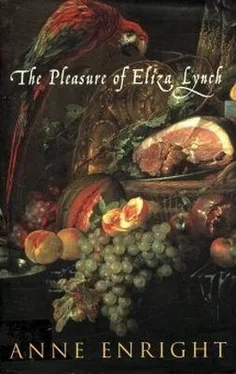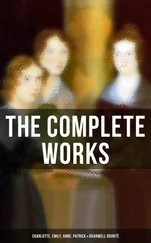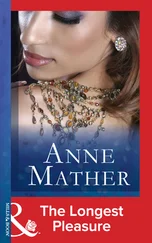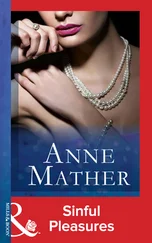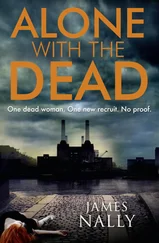Mr Whytehead calls them Howlers. They roll their voices around in a special reverberating gourd in their chests, he says, also, perhaps, the mist amplifies the noise as clouds do thunder. He appears out of the mist, to say all this. He is standing at the rail beside us all of a sudden, talking about thoracic cavities, with me still frantic in my night attire. I don't think the stupid man ever sleeps.
But I think they are an omen, whatever about their cavities. I find myself in tears, and cry all morning. My dear friend is bored with me, lump that I am. I cry so much I am thirsty. Even this liquid I must conserve, in the heat. At eleven o'clock, Francine glues me together for our Spanish lesson, with rice powder and eau de lavande, but when Mr Whytehead comes into the room my dear friend says that his time is better spent this morning on matters of state. And so he bows and retreats, and I want to cry some more, even though I do not like the man much. And because I cannot abide the cabin longer, I take a turn on deck.
But they were an omen. I was right – and it is no use keeping an omen to yourself. Because at noon, after a hard morning pushing towards home, one of the boilers bursts, though not badly. There was an unimportant sound, as though of two pieces of wood clacking together. It seemed to come from the shore. Then, after a brief silence, the frightful screams of one of the sailors; scalded in the blast of water and steam. He clambered up to the deck and rolled out of the hatch, tearing at his clothes, which were stuck to his body and burning him still. An attempt to free him of them proved ill-advised (Doctor Stewart came late), and now he lies, half-flayed and moaning, while the ship and all on it are horribly becalmed. I have made a visit. He lies shivering in his cot, loosely bandaged in fat, his lips sweet with morphia. He calls me 'Dora, my Dora' and says yes, he is quite comfortable, thank you. But still the moans seep out of him, until every man on the boat mutters a guilty prayer that he may die between this breath and the next. But the next breath comes, laden with pain.
And so I sit. I wear a dress of extreme simplicity in shades of pink and cream and favour his good side, praying a little that he will not turn to look at me out of his other, boiled eye. I am his Dora still, and hold his hand. I wait for secrets, but there are none. The dying have very little to say, I fear, as we lean over to gather their last whispers in our ear.
He pulls me to him and starts a paternoster for me to finish, and with the sound of the first line, I know who it is – it is the sailor who was praying the night they all got drunk. The sailor who lay pinned to the deck, as though pressed there by the beauty and the weight of the sky. Is it possible that he knew that this journey would be his last? How can we know? But he did know. I am sure, he did.
Now, as the evening wears on, I look for my death. I hunt it out. I prise open the blank future and try to smell it – When and How. When and How. If I were to die by water, surely I would know it, or by fire. If I were to be murdered then I would be afraid of people's hands. But I am not afraid of anything, I think, or was not, until now. Now, I am afraid for the child, the inscrutable span and course of his life, all shut out from me. All the years I face for him; the not-knowing and ever-watching, the fact that there is a part of me now that can be truly hurt, after I had left hurt behind.
The last time I said the Lord's Prayer was on my marriage day. I do not want to sleep. It is a good day, a long one, a clear one. The child is easy, and my mind runs free.
Or perhaps it is the orange blossom that makes me think of weddings; it grows wild on the bank and the scent drifts towards us, across the water. I was married in a dress of ordinary blue, with a posy of violets in my hands – no orange blossom there, though M. Raspail did send a butter-coloured straw bonnet trimmed with some cheap-looking berries. It arrived in our room in Dover and Quatrefages laughed quite unkindly when I tried it on. So I took it off and hit him with it. Despite which it was, you know, quite a tender moment, and makes me think now that we could have been friends.
I think it is liquorice that I crave. I will have a little black child.
I remember playing the piano in Mallow. I must have been very young, the keys looked so huge and Papa stacked books on the seat to help me reach. There was a crowd of people in the room and I wore a sprigged muslin dress. They all clapped and kissed me, and my father was most pleased. Some kind gentleman gave me a bag of liquorice, after. I wonder which gentleman it was.
The sailor talks about pies. It makes me hungry. I should leave him – it is not good for my belly to be where dead things are. The words dribble from his blasted mouth, and now and then, clarity. His shirt is left out in the rain. Dora (myself) did not believe him when he said… what? This is important; he really must say this. But the pie is distracting. He sinks back into the pie. I don't know what kind of pie it is, but it is very good. Mmm mnn, he says, like a child. Mmm mmm mnn.
And so he dies. It is four a.m., the hour when the world turns over. It occurs to me that I do not know his name. I place his crocked hands upon his chest – so still – and take my leave of him. Outside, the sailors, when I pass, take off their caps. Who cares whose wife I am, now?
This morning they set to repairing the boiler, with a little furnace set up on deck for the soldering pans. We sit on the water, and burn.
I settle myself into my toilette and I want to cry again, not because my face is so lumpy but because of the cheap cake of rouge I am using – a little tin box, with a picture of the tower at Glendalough on the lid. It belonged to my sister once, but did not suit her. I think it is the only thing I have about me from Ireland. There is also a little brush and some maschara from Algeria. My bag of paints is a sad museum. The right lip colour, the absolute shade of blush, these are the only things that persist in my life. I think that some potion here will follow me to the grave. And then I think that this is literally true – some stuff here will be applied to my dead face. So I leave the brush down and stare, while Francine bustles behind me. All flesh and blood.
I am the daughter of a doctor. My mother came from a naval family, and her brother fought with Nelson's fleet. There are certificates for all this, and letters, in three or four different countries. I was married in Kent at the age of fifteen to a man called M. Quatrefages who served with the French forces in Algeria. This marriage was illegal under French law, because of my tender age, but legal in England.
I am the daughter of a doctor who specialised in rheumatic disorders at the spa town of Mallow in the Co. Cork. My mother suffered herself from bad health, and took the waters there, and we lived nearby for some years. My sister, Corinne, caught the fancy of that famous Italian musician Tamburini, and lives with him, is married to him now in Paris. Where I joined her, after leaving a cruel husband, a certain M. Quatrefages, who took advantage of my tender years to spirit me away to Kent and marry me there. This marriage is still valid in England, much to my consternation. I have met in my time the musician Berlioz, who much admired my playing, also the Princesse Mathilde, who received me kindly, also several members of the Russian nobility, from whom I became estranged on the occasion of the Eastern War.
I was born in Ireland and lived there, near the spa town of Mallow, until the age of ten, when the hunger then raging in the countryside obliged us to leave from the harbour at Queenstown. My father is a doctor and my mother is a Schnock (one of the naval Schnocks). After a brief spell in England, I was educated in Bordeaux at Mme Hubert's school for young girls. I was married in Kent, at a very young age, to the chief veterinarian surgeon of the French forces in Algiers. While there I was much patronised by the Chief of the French Commissariat, M. Raspail, also the Fez of Tunis, who both much admired my playing. My marriage was illegal under the Napoleonic Code, and when this became clear to me I left the deserts of Africa for Paris, where I studied at the conservatoire, and applied for my decree nisi, which was delayed by the complications of English law. When we get to Paraguay I will have Senor Lopez draft a new law. Because I am carrying, or so he tells me, the future of Paraguay.
Читать дальше
